TEHRAN, (MNA) – Former Turkish PM's advisor says Iran like many of its rivals wants to upgrade its partnership with China not to be left out of Chinese global investment, adding this partnership can shift oil and gas global balance.
In a meeting on June 21, Iran's cabinet of ministers approved the final draft of the 25-year comprehensive cooperation plan between Iran and China.
On July 5, came the announcement of the Iranian FM Zarif about Iran-China negotiations over a 25-year so-called 'accord', which as he put into words is "clear and the two countries have nothing to hide about it." However, some claims and reports were made by some specific foreign-based media lashing out at the Islamic Republic.
To know more about the significance and consequences of the possible agreement for Iran and China, we reached out to Mehmet Ogutcu, Chairman of the London Energy Club.
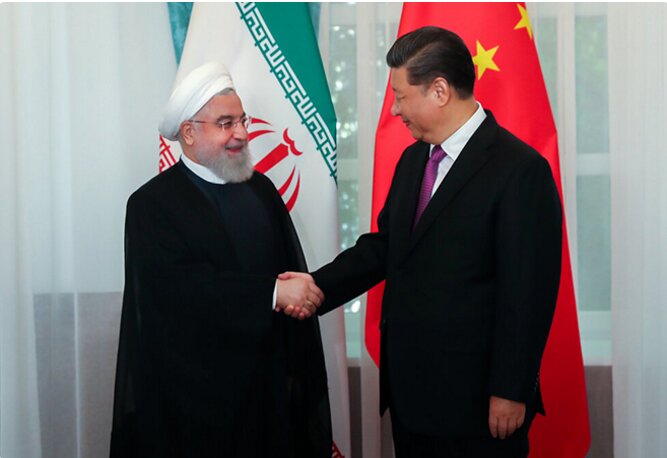
Here is the full text of the interview:
What is the importance of the 25-year cooperation agreement for Iran and China?
There are deep seated, mutually beneficial ties between Iran and China - tested historically as the two ancient Sino-Persian civilizations since at least 200 BC, working in many spheres today and projecting to the future.
This relationship has gained further momentum at a time when there is a sharpening of polarization between the US and China, which I call the beginning of a new “Cold War” in the making. There are many uncertainties with regard to who will be in what alliance in the new world order, but for Iran the choice is clear under the current circumstances.
Iran and China have quietly drafted a sweeping economic and security partnership that would undercut the Trump’s efforts to isolate IranIran and China have quietly drafted a sweeping economic and security partnership that would clear the way for billions of dollars of Chinese investments in energy and other sectors, undercutting the Trump administration’s efforts to isolate the Iranian government because of its nuclear and military programs. The agreement, still to be fleshed out and finalized after more than four years of negotiations, is important for both Iran and China in varying degrees.
For Iran, a strategic 25-year framework agreement with China is yet another signal to Europe and a potential Biden administration after the US November presidential election that it is not isolated in the new global system and, to the contrary, remains aligned solidly with the next superpower. Iran also means that when the chips are down, it will be Tehran, not Riyadh, to which China will possibly turn in the region.
For China, it shows that Iran is a strong bridge-head that can be relied on long-term in the Middle EastFor China, it shows that Iran is a strong bridge-head that can be relied on long-term in the Middle East at a time when Beijing relations with the West turns from tension into a confrontation. China’s motives are straightforward but varied: It seeks to advance its interests, such as a pressing need for energy imports and for destinations for surplus capital and labor. It also tries to advance the 'Belt and Road' Initiative, which is aimed at reshaping regional economic topographies in China’s favor and counters what Beijing sees as an American effort to contain it.
Though nowhere close to implementation, the deal highlights an important moment of development at a time when US-Chinese tensions have allowed Beijing to pay less heed to American policies and threats.
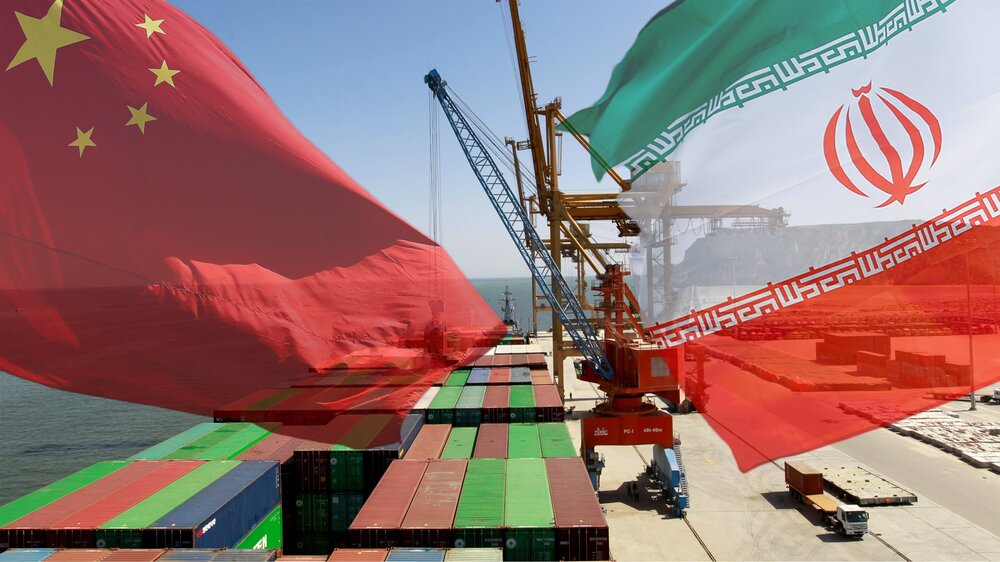
How can China's investment affect Iran’s economy?
Amid its long-running conflict with the US, Iran has increasingly turned to China for aid to boost its military and help protect its economy from trade sanctions imposed by Washington. For more than two decades China has unquestionably been the largest trade and investment partner of Iran. Bilateral trade in 2018 totaled $35 billion, with crude oil accounting for about half, or $15 billion.
The Chinese presence in Iran has grown over the years. As the second-largest and most diverse economy in the Middle East after Turkey, Iran was an early destination for many Chinese enterprises. But taking a comparative view of Chinese projects elsewhere, we find that Beijing’s footprint has grown much more in other countries in the Middle East than in Iran. In the decade beginning in 2008, the average annual turnover of Chinese construction projects in Iran was $1.7 billion while the average annual turnover in Iraq was $2.2 billion, and $4.8 billion in Saudi Arabia.
Whilst the imposition of US and EU sanctions in 2008 did not completely deter Chinese firms from Iran, it did prevent much of the long-term investment China directed elsewhere in the region. This was clearest in the capital-intensive oil and natural gas sectors, where Chinese firms were slow to fulfill contractual obligations when international sanctions were at their height, leading Iran to unilaterally terminate some of the largest contracts with Chinese state firms.
The deal represents a potential shift to the global balance of oil and gas sector, as Iran has promised China guaranteed discounts on its oil and gasTehran is now pursuing an upgraded partnership with China not because it is dependent on Beijing’s economic support, but rather because it has been largely left out of a decade of aggressive Chinese investment worldwide. Iran wants to put flesh on the skeleton of this 25-year partnership agreement that envisions up to $400 billion in Chinese investment. China is reportedly considering investing $280 billion in developing Iran's oil, gas, and petrochemical sectors; and another $120 billion in upgrading Tehran's manufacturing infrastructure. The deal represents a potential shift to the global balance of oil and gas sector, as Iran has promised China guaranteed discounts on its oil and gas, and the right to delay payment for Iranian production up to two years.
Let’s not forget that numerous agreements signed by Presidents Xi Jinping and Hassan Rouhani during the Chinese leader’s visit in 2016 would, if implemented, expand economic relations between the two countries by a factor of 10 to $600 billion and significantly enhance military co-operation.
Under the terms of the new agreement, China will be granted the right to delay payment for Iranian production up to two years. China will also be able to pay in soft currencies that it has accrued from doing business in Africa and Central Asia, in addition to using renminbi should the need arise—meaning that no US dollars will be involved in these commodity transaction payments from China to Iran.
This will be a pivot point of the 2,300 km New Silk Road that links Urumqi to Tehran, connecting Kazakhstan, Kyrgyzstan, Uzbekistan and Turkmenistan along the way, and then via Turkey into EuropeIran also signed a contract with China to implement a project to electrify the main 900km railway connecting Tehran to the north-eastern city of Mashhad. There are also plans to establish a Tehran-Qom-Isfahan high-speed train line and to extend this upgraded network up to the north-west through Tabriz, home to a number of key oil, gas and petchems sites, and the starting point for the gas pipeline to Turkey. This will be a pivot point of the 2,300 km New Silk Road that links Urumqi to Tehran, connecting Kazakhstan, Kyrgyzstan, Uzbekistan and Turkmenistan along the way, and then via Turkey into Europe.
China helped the development of Iran’s nuclear program, although most of this assistance had been, in principle, geared towards civilian uses of nuclear energy.
Substantial Chinese capital investments in Iran’s energy and infrastructure projects mean that Beijing must take political risks seriously. Not only the factional feuds inside the Islamic political elite can lead to delays and cancellations of some projects, China must also be mindful of geopolitical risks to its relations with Iran. The US, some Arab countries, and Israel are now fully committed to using economic pressure, cyber-attacks, and sabotage against Iran. These interventions can cause a direct disruption in China’s investment projects by forcing Chinese firms to suspend operations under the threat of sanctions. They can also disrupt Iran-China economic relations indirectly by causing instability and encouraging anti-Chinese sentiments among opponents.
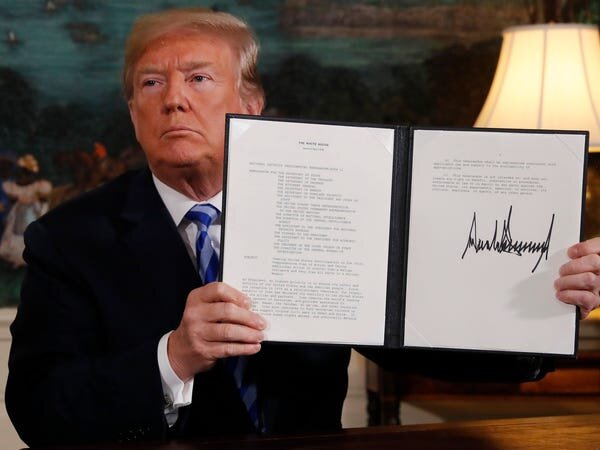
How will the agreement affect the US maximum pressure policy against Iran?
The outsize role played by the US in the region ironically benefits Beijing as it expands its economic ventures and power projections without being able to provide adequate security for its capital and citizens deployed to the region. For all its “wolf warrior” bluster, China is careful in picking its battles with Washington. So far, it largely has chosen not to wage them in the Middle East — for example, doing little to shelter Iran from American secondary sanctions. So even as China seeks to make strategic gains in the Middle East, it does so without fanfare.
Iran’s history has made it suspicious of external powers, and China’s help in recent years — buying Iranian oil at a steep discount and crowding out Iranian domestic producers with low-cost imports — seems not to have engendered affection among the Iranian populace.
What Iranians seem to desire is to be no one’s junior partner, but to be self-sufficient and stand among the likes of Russia and China as equals. This is likely to create some tensions between the two countries which I believe are manageable given the bigger economic and geopolitical interests involved.
China-Iran relationship is most certainly to grow closer and stronger in coming yearsLet’s make no mistake: The China-Iran relationship, whether in the form of formal partnership agreements or simply ad hoc cooperation, is most certainly to grow closer and stronger in coming years, as China tries to project power westward and Iran seeks to insulate itself from the debilitating effects of American power and enhance its own regional influence.
One particular issue is how to handle strong opposition from some Iranian groups to the “asymmetrical relationship” with China. While the Iranian government has not released the full text of the new agreement, opponents have referred to leaked documents to claim that it will compromise Iran’s economic interests and undermine its sovereignty. However, it looks as though this agreement is similar to China’s agreements with other countries such as Iraq, Egypt, Saudi Arabia, and the UAE in the context of the Belt and Road Initiative.
China has always maintained a policy of non-interference in the domestic affairs of its economic partners. This policy has served China well and encouraged many countries that have painful historical memories of Western intervention, to “look east.”
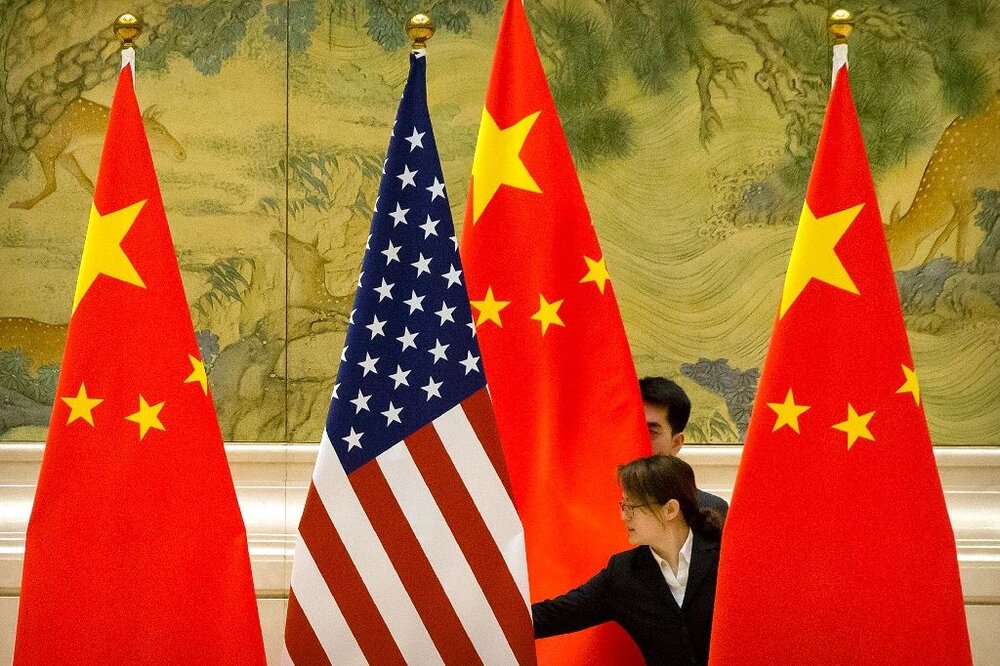
Can this agreement challenge US unilateralism?
China needs allies to challenge US unilateralism and be able to expand its global footprint. That is perfectly in fitting with Iran’s goals as Tehran has been isolated and sanctioned for long years by the US. While the deepening of the Iran-China relationship may be inevitable, the US will surely not let it be easy for either Tehran or Beijing and continue to impose costs on Chinese companies that aid Iran.
China might have welcomed the release of news about its agreement with Iran as a signal to US that "if you continue to escalate tensions, we will offer more support to Iran and neutralize your 'Maximum Pressure' strategy"Up until now, China has shown partial sensitivity toward US sanctions against Iran because, as a trade partner, the US has been far more valuable to China than Iran. But US-China relations are deteriorating and China might have welcomed the release of news about its comprehensive strategic agreement with Iran as a signal to the US that "if you continue to escalate tensions we will offer more support to Iran and neutralize your 'Maximum Pressure' strategy".
China is believed to have helped Iran militarily in conducting training of high-level officials on advanced systems, providing technical support, supplying specialty steel for missile construction, providing control technology for missile development, and building a missile factory and test range. China is believed to be responsible for aiding in the development of advanced conventional weapons including surface-to-air missiles, combat aircraft, radar systems, and fast-attack missile vessels.
China not only sold Iran small arms but supplied it with tactical ballistic and anti-ship cruise missiles such as the Silkworm. Chinese design and technology can be seen in many Iranian missile series. Beijing’s assistance was seen as helpful for Iran to develop its defense capabilities, despite repeated international sanctions.
China and Iran signed an agreement to bolster defense and military co-operation and fight terrorism. The two nations held their first joint naval drill in Persian Gulf waters a few years ago. They also held four days of naval exercises between China, Iran and Russia, covering 17,000 s.q. km, in the Indian Ocean and Gulf of Oman.
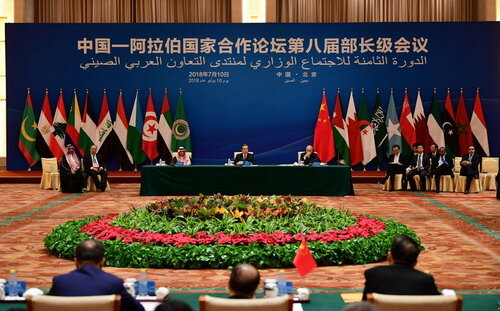
Will this affect China's relation with other Persian Gulf states?
One great difficulty for China is how tactful and balanced it must be in managing its relations with Iran versus its arch enemies in the Middle East and the Gulf region, except Qatar and Oman.
When looking at the multiple conflicts and crises that convulse the Middle East today, China rarely seems to play a major role. Whether it is the fight against ISIS, the conflict in Libya, the standoff surrounding Qatar or the war in Yemen, China does not appear to have a major stake in any of these issues.
But perceptions can be deceiving. Indeed, China is already significantly economically invested in many countries in the region, and has already surpassed the EU, Russia and the US as the most important trade and investment partner in several countries. The further rollout of China’s Belt and Road Initiative is only expected to further boost China’s economic ties to the region. But with economic interests come political and security interests. The question is then to what extent China is willing and able to become more politically involved in the region and whether it will be forced to take sides, particularly when Iran comes into the picture with the Saudi-led PGCC countries.
The region’s deep political fissures make it difficult for outsiders to avoid taking sides in its many conflicts. No doubt, Tehran and Beijing both would like to cooperate on a far grander scale if geopolitical circumstances permit itNo doubt, Tehran and Beijing both would like to cooperate on a far grander scale if geopolitical circumstances permit it. The region’s deep political fissures make it difficult for outsiders to avoid taking sides in its many conflicts. This poses a risk for a China that aims to be a friend of everyone — Iran, Israel, Turkey, Russia, Saudi Arabia, and other Arab states alike — to maximize the benefits of its regional engagement while minimizing its commitments. Consistent with this balancing act, the China-Iran agreement roughly coincided with the biannual China-Arab States Co-operation Forum, which prompted numerous proclamations of Chinese friendship with Iran’s Arab rivals.
The economic downturn, which affects China’s economic ties to the region, could persuade Beijing to further limit its exposure if the Persian Gulf States fail to find a way to come to grips with Iran in a way that would dial down tensions.
Mehmet Ogutcu is Chairman of the London Energy Club and CEO for the Global Resources Partnership. He was a former Turkish diplomat, advisor to the Prime Minister, a senior executive of International Energy Agency, OECD and British Gas.
Interview by Zahra Mirzafarjouyan


No comments:
Post a Comment